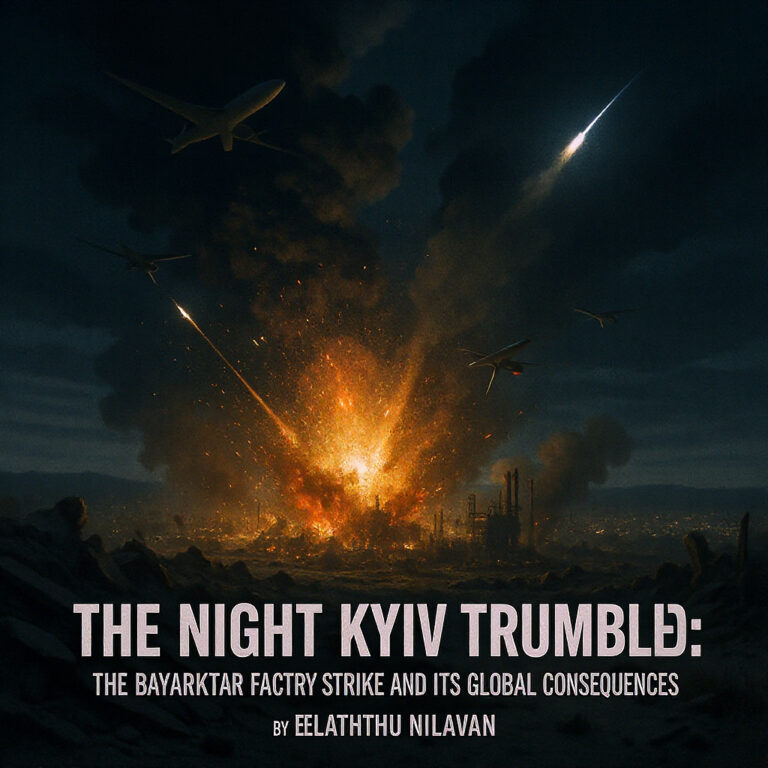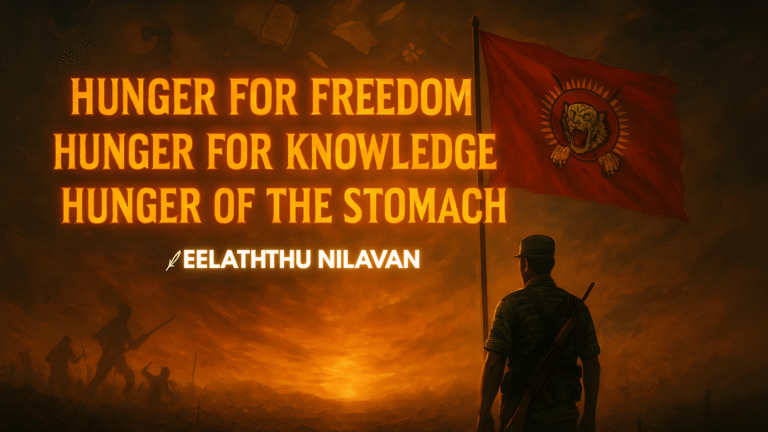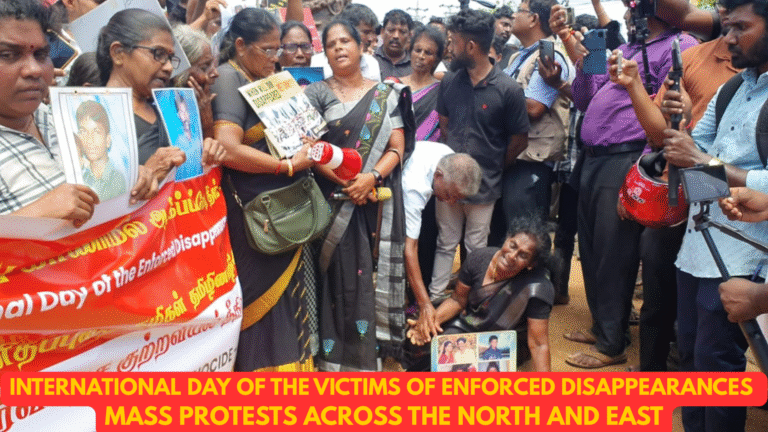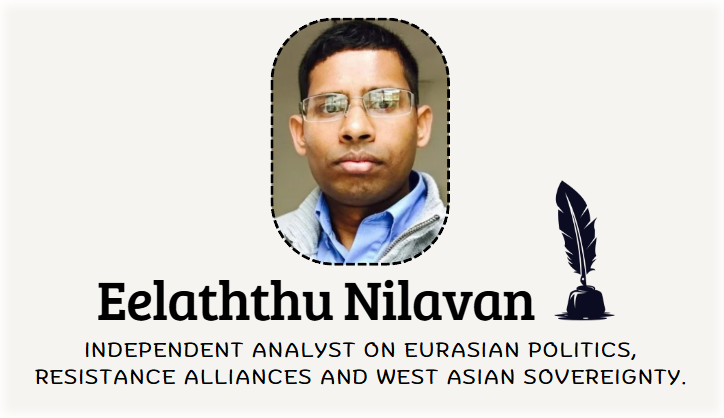
⟣ By Eelaththu Nilavan | June 30, 2025 ⟢
In a stunning geopolitical show of power, U.S. President Donald Trump declared a “tremendous breakthrough” at the historic peace agreement signing between Rwanda and the Democratic Republic of Congo (DRC). Framed as a path to end one of Africa’s longest and bloodiest conflicts, the so-called “Washington Accord” has instead raised piercing questions about U.S. motives—specifically, its pursuit of Africa’s irreplaceable mineral wealth.
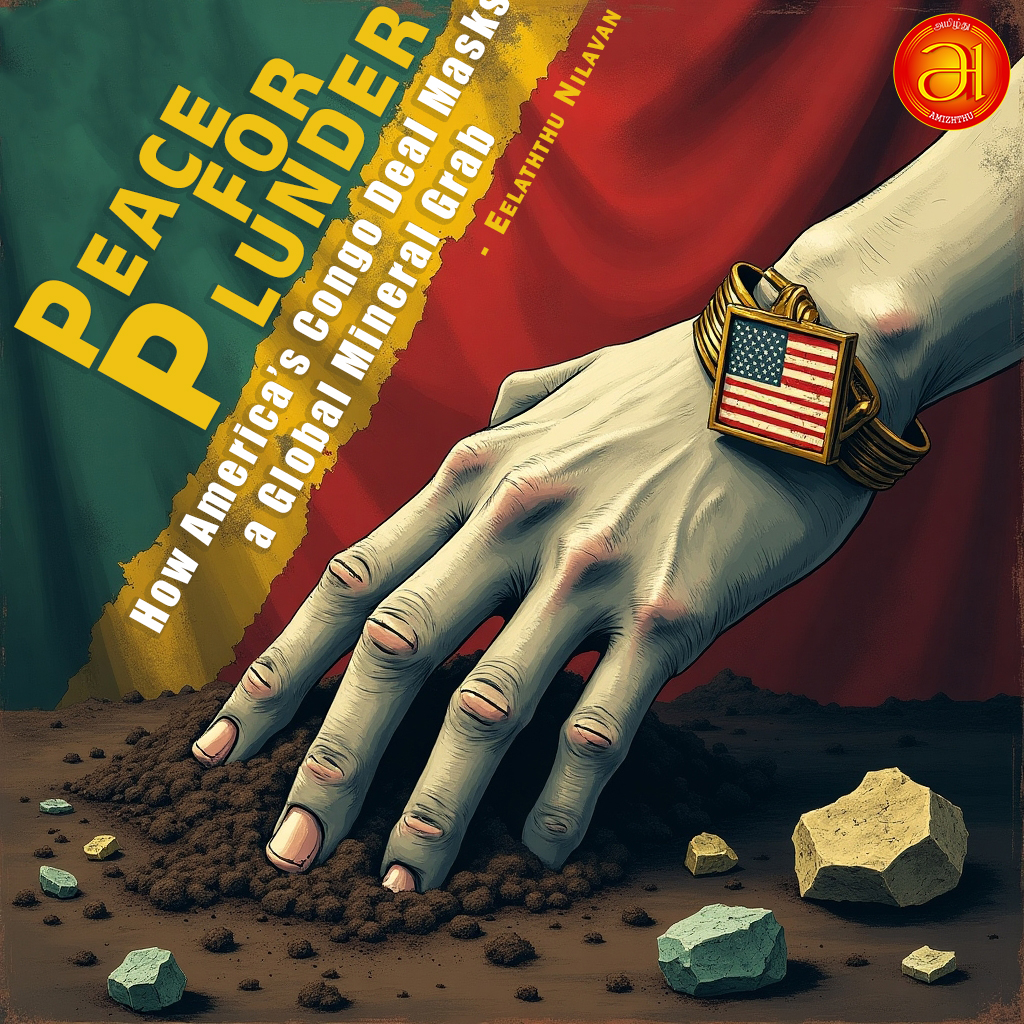
This diplomatic ceremony, held not in Africa but in the White House, marked Trump’s third major self-declared peace deal in months, following similarly controversial agreements between India–Pakistan and Israel–Iran. While the political theater was global, the stage was unmistakably American.
Yet beneath the optics of peace lies a darker reality: a sophisticated new phase of U.S. global strategy—mineral diplomacy cloaked in the language of peace.
✦. A Deal Signed in the Shadow of Cobalt and Blood
The peace accord brings together two nations long torn by proxy conflicts, rebel militias, and foreign mining interests. Though hailed as a move toward stability, Trump’s remarks gave away the underlying stakes: “We’ve also gotten a lot of the mineral rights from the Congo,” he openly stated—an extraordinary admission of transactional diplomacy.
The minerals in question—cobalt, tantalum, gold, lithium, tin, and rare earths—are not merely valuable; they are essential to modern life. From smartphones and satellites to electric cars and AI processors, the digital world depends on African soil.
It’s no secret that the DRC is the beating heart of this supply chain. And this peace deal, critics argue, may be less about ending violence and more about restarting mineral extraction at full throttle—this time with American companies at the helm.
✦. The Hidden Hand: Civil Wars as a Cover for Extraction
For decades, Africa’s civil wars have been fueled by external powers, not merely for ideological alignment, but for resource control. The Cold War saw the U.S. and Soviet Union manipulate African conflicts to gain geopolitical advantage. Now, in a multipolar world shaped by economic rivalry with China, the battleground has shifted from ideology to industry.
Evidence suggests that:
U.S.-trained officers in Africa have staged or supported multiple coups (e.g., Mali, Niger).
Arms transfers and “counterterrorism” training are routinely channeled to rebel-linked governments.
AFRICOM (United States Africa Command) operates under the guise of stability but has been accused of deepening fragmentation across the Sahel and Great Lakes regions.
Civil war, in this view, becomes the fog beneath which minerals are removed, communities disempowered, and foreign corporations enriched.
✦. U.S. Military Positioning: “Dominating Earth and Orbit”
Trump’s global narrative includes not just Africa but also beyond the planet itself. Under his administration and continuing into the Biden era, the U.S. Space Force and the Army’s 1st Space Brigade expanded orbital dominance infrastructure across Greenland, Ascension Island, Diego Garcia, and beyond.
While no “cosmic” military bases exist on celestial bodies, Earth-based stations—strategically aligned near global resource chokepoints—create an invisible web of power. These bases are linked to mineral-rich zones through geospatial surveillance, satellite-guided extraction logistics, and military-backed transport corridors.
This enables a new form of global control: space-enabled neocolonialism.
✦. Is It Legal to Plunder Resources Under a Peace Deal?
International law does not explicitly outlaw resource acquisition in peace treaties. However:
Unfair terms, signed under unequal power relations or during civil instability, raise serious ethical questions.
Local populations often see no benefit; mines remain unsafe, and environmental destruction goes unchecked.
“Peace” may function as a legitimizing tool for resource theft, granting contracts to corporations with histories of labor violations and ecological disaster.
In short, legal frameworks lag behind the rapid militarization of resource politics.
✦. A Nobel or a Nightmare?
Trump has already floated his eligibility for the Nobel Peace Prize—but observers, including Nobel laureate Dr. Denis Mukwege, warn that this deal risks turning perpetrators into profiteers. By legitimizing resource access through fragile agreements, it might create long-term dependency rather than development.
“We do not want peace built on our silence,” said one Congolese activist. “We want peace built on justice, dignity, and control over our land.”
✦. Africa’s Future, America’s Hand
This so-called “peace” deal reveals the blueprint of U.S. modern imperialism:
✹. Brokering conflict resolution while bypassing local stakeholders (rebels like M23 were excluded).
✹. Claiming mineral rights under the guise of reconstruction.
✹. Expanding geospatial and orbital military control to safeguard extraction routes.
✹. Branding it as diplomacy to mask economic invasion.
The real question is not whether the U.S. can bring peace, but what kind of peace it brings. A peace that retools colonial strategies for a mineral-hungry digital age? Or a peace that empowers the people who have suffered for generations?
✦. Conclusion: Diplomacy as a Disguise for Dominiona
The so-called Washington Accord will not be etched in history as a beacon of peace, but as a calculated inflection point in a global scramble for Africa’s soul. Behind the handshakes and press conferences lies a far graver reality: a renewed imperial blueprint where “peace” is weaponized to pacify resistance, and plunder is legalized through the language of diplomacy.
This is not merely a deal—it is a doctrine.
It represents a shift from overt military invasion to covert economic occupation, where armed silence replaces armed struggle, and foreign powers redraw Africa’s resource map without firing a shot, only signing papers.
The true battlefield is no longer just the soil, but sovereignty itself.
Will Africa rise to reclaim its birthright from a world order that sees it as a warehouse for batteries, chips, and satellites? Or will it be dragged deeper into a digital-age colonization where minerals flow out and misery flows in?
This century will decide.
Either Africa becomes the author of its future, or it is forever written into footnotes of someone else’s profit.
The choice—if there is still time—is not just Africa’s. It is the world’s.
And history is watching.
By Eelaththu Nilavan / 30/06/2025
The views expressed in this article are the author’s own and do not necessarily reflect Amizhthu’s editorial stance.

